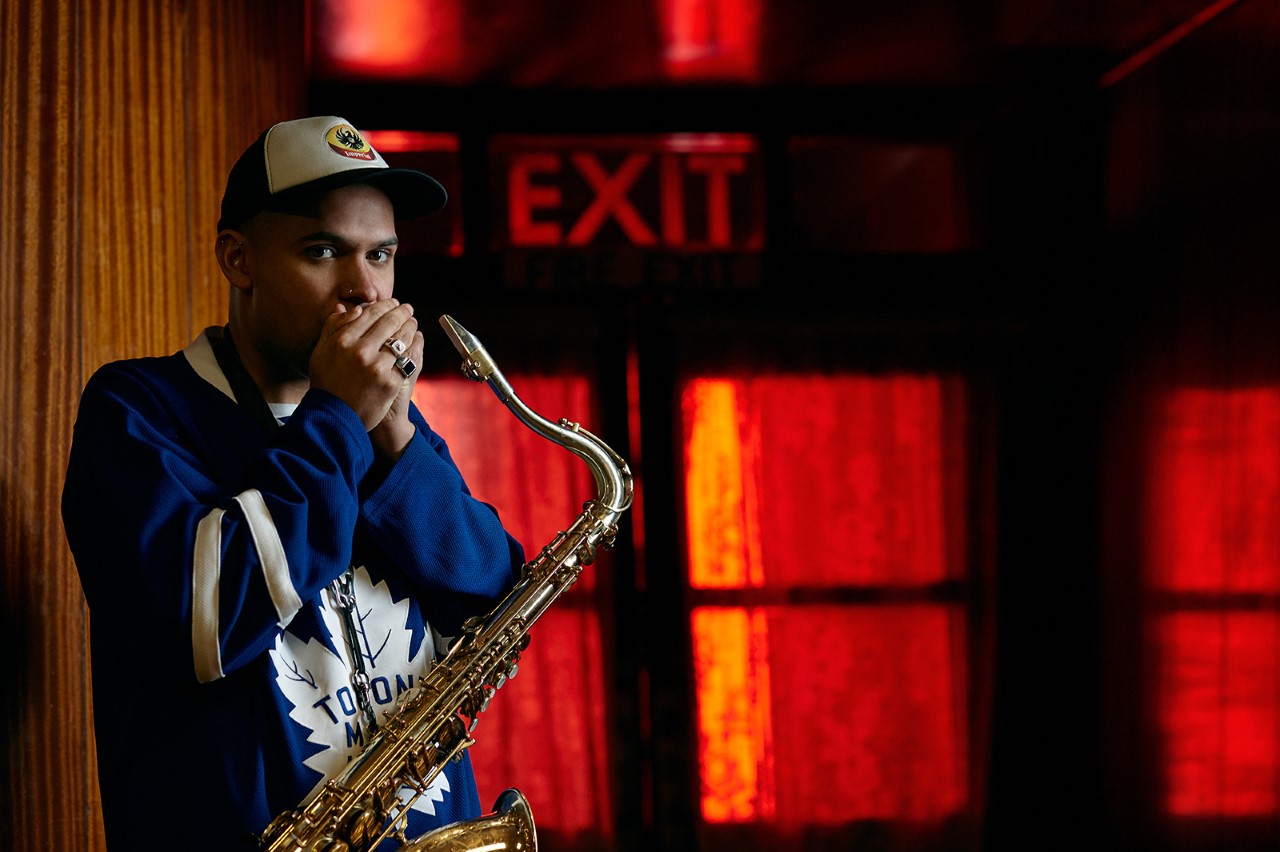Binker Golding Interview

Interview conducted by Charlie Anderson.
Tell us about the Binker Golding Band.
On piano is Joe Armon-Jones, on double bass is Dan Casimir and on drums is Sam Jones. They all appear on the album and it’s just the four of us on the whole thing. Generally, when we do live shows it’s that band as well.
They’re all musicians that I get on with very, very well, musically speaking and personality-wise so that makes it a lot easier. It’s probably the most easy-going band I’ve ever had. There are no clashes of personality or anything like that. They’re all very nice guys and easy to work with. I don’t have to give them much direction or how to play, I just let them get on with it.
How is it different to what you’ve done before?
Pretty different, in every way, really. Most people know me now from Binker & Moses, so in that band it’s always been sax and drums centric. We’ve had some guests along the way, but we’ve never had a piano or a bass as a guest, so it’s completely different to that. It’s a traditional quartet line up of acoustic piano, double bass with drums and sax.
It’s far more composed music than what I’ve been doing before, at least with the duo in recent years. It’s a lot more composed, more thorough and more thought out. It’s less of a jam band situation, which is often how the Binker & Moses stuff tends to be, deliberately.
There’s plenty of improv but it’s more of a straightforward jazz quartet sound, that you’d be familiar with, from the 1950s and 60s, but with, hopefully, modern material and new material.
How do you go about composing?
I never compose at the saxophone. I tend to sit at the piano and write with just pen and paper, and without a piano as well. I find that to be really useful, sometimes way more useful than sitting at the piano. I try and work out ideas. I keep a notebook, and sometimes write down fragments, then review them and basically work the material at the piano. I try and work out all the useful options and permutations of the core material, and what potential it might have, what it’s trying to say, if anything at all.
I’m a very slow writer these days. I used to be very fast years ago when I was in my early twenties at Guildhall and Middlesex. Now, I don’t think I’m any slower, I just think the quality control has gotten stricter, so it takes me a long time to write. There’s only seven tunes on the album. I think there were about 30 tunes to choose from.
Do you have a favourite tune on the album?
I wanted there to be eight tunes on the album but I couldn’t fit the eight to a vinyl because the other tracks were too long. The one I thought was best didn’t make it to the record. Basically, it didn’t really fit the character.
Of the ones that did make it, my favourite is probably You, That Place, That Time. I think it was the best written. If I could go back, I would re-write parts of it, but I still think it’s my favourite of the bunch.
Tell us about the role Tomorrow’s Warriors has played.
Tomorrow’s Warriors, and in particular Gary Crosby, have made such a tremendous contribution to the UK jazz community. There are so many musicians on the scene today that have at some point been part of Tomorrow’s Warriors. I greatly enjoy teaching there and I’m looking forward to the generation I’m currently teaching becoming the next generation of players at the forefront of the music.
What are your plans for the future?
We’re looking at a release next year, probably March/April and hopefully some reasonably intense touring around that time. In a perfect world I’d like to be in a recording studio making the second album on the same day that this one comes out. I’ll try and think ahead and hopefully that will work.
The Binker Golding Band
New Generation Jazz at The Verdict
Friday 26th October, 2018.



